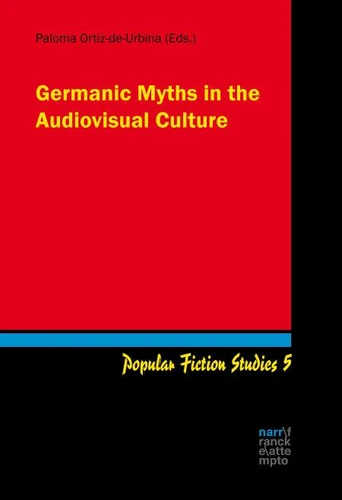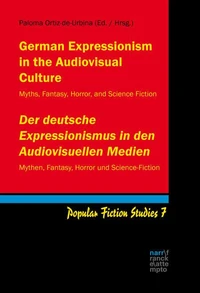Germanic Myths in the Audiovisual Culture
Par :Formats :
Disponible dans votre compte client Decitre ou Furet du Nord dès validation de votre commande. Le format ePub est :
- Compatible avec une lecture sur My Vivlio (smartphone, tablette, ordinateur)
- Compatible avec une lecture sur liseuses Vivlio
- Pour les liseuses autres que Vivlio, vous devez utiliser le logiciel Adobe Digital Edition. Non compatible avec la lecture sur les liseuses Kindle, Remarkable et Sony
 , qui est-ce ?
, qui est-ce ?Notre partenaire de plateforme de lecture numérique où vous retrouverez l'ensemble de vos ebooks gratuitement
Pour en savoir plus sur nos ebooks, consultez notre aide en ligne ici
- Nombre de pages218
- FormatePub
- ISBN978-3-8233-0212-4
- EAN9783823302124
- Date de parution11/05/2020
- Protection num.Digital Watermarking
- Taille5 Mo
- Infos supplémentairesepub
- ÉditeurGunter Narr Verlag
Résumé
Germanic mythology is currently experiencing a significant boom in audiovisual media, especially among younger audiences. Heroes such as Thor, Odin and Siegfried populate television and comic series, films, and video games. When and why did this interest in Germanic mythology emerge in the media? Starting from the interpretation of the myths used by Richard Wagner in 'The Ring of the Nibelung' at the end of the 19th century, the contributions in this volume examine the reception of Germanic myths in audiovisual media in the course of the 20th and 21st century.
Germanic mythology is currently experiencing a significant boom in audiovisual media, especially among younger audiences. Heroes such as Thor, Odin and Siegfried populate television and comic series, films, and video games. When and why did this interest in Germanic mythology emerge in the media? Starting from the interpretation of the myths used by Richard Wagner in 'The Ring of the Nibelung' at the end of the 19th century, the contributions in this volume examine the reception of Germanic myths in audiovisual media in the course of the 20th and 21st century.




